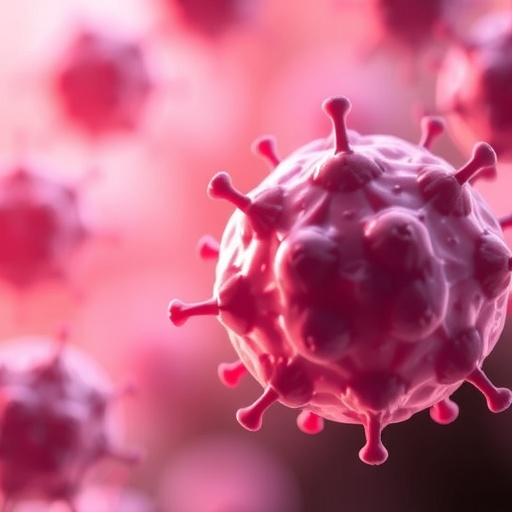In the rapidly evolving field of oncology, one of the most perplexing challenges remains the management of cancer of unknown primary (CUP). This enigmatic diagnosis occurs when metastatic cancer is detected, but despite exhaustive investigations, the site of origin cannot be identified. Patients with CUP historically face a grim prognosis due to limited treatment options and the absence of tailored therapeutic strategies. However, a groundbreaking multi-center retrospective study published in BMC Cancer now shines a hopeful light on the potential of immune checkpoint inhibitors (ICIs) in extending survival for these patients.
CUP represents a diagnostic and therapeutic conundrum that has stymied clinicians for decades. Traditional systemic therapies have shown minimal success, often because they are designed to target cancers with known tissue origins and specific molecular profiles. The recent study analyzed clinical data from 190 CUP patients treated across six hospitals, providing a robust and diverse patient population. Among these, 58 individuals received immunotherapy with ICIs, a class of drugs that has transformed treatment paradigms across multiple malignancies by harnessing the body’s own immune system to combat cancer cells.
Immune checkpoint inhibitors work primarily by blocking inhibitory pathways that cancer cells exploit to escape immune detection. By inhibiting molecules such as PD-1, PD-L1, or CTLA-4, these agents reinvigorate T-cell responses, facilitating more effective anti-tumor immunity. Their success in cancers like melanoma, non-small cell lung cancer, and renal cell carcinoma raised an essential question: could ICIs also benefit patients suffering from CUP, a heterogeneous group with poorly understood biological characteristics?
The study’s findings were striking. Patients treated with ICIs demonstrated a median overall survival (OS) of 17.3 months across the cohort. More importantly, within the unfavorable CUP subgroup—patients who traditionally do poorly—those receiving ICIs achieved a significantly longer OS of 29.27 months compared to 10.43 months in those not treated with immune therapy. This difference signifies a nearly threefold improvement and was statistically robust, indicated by a hazard ratio (HR) of 0.435 and a p-value of 0.0006.
Furthermore, when ICIs were employed as a first-line systemic treatment, the survival benefits became even more pronounced. The median OS soared to 45.53 months compared to 12.03 months in non-ICI-treated patients. Progression-free survival (PFS), a critical endpoint reflecting time patients live without disease worsening, also improved substantially—11.33 months versus 5.43 months in the control group. Both outcomes were supported by convincing hazard ratios and p-values, underscoring the potential of ICIs as a frontline option in CUP therapy.
Response rate data further bolstered the case for immunotherapy. The objective response rate (ORR) and disease control rate (DCR)—metrics evaluating shrinkage of tumors and stabilization of disease—were both higher in the group receiving ICIs. These results suggest that beyond prolonging survival, immunotherapy can confer meaningful disease control, potentially improving quality of life for CUP patients.
One of the notable aspects of the study is its retrospective and multicentric design, which adds real-world applicability. By encompassing data from six distinct hospitals, the research minimizes biases linked to single-institution experiences and captures a spectrum of clinical practices and patient demographics. Although retrospective studies inherently possess limitations compared to randomized controlled trials, the compelling survival advantages reported here open avenues for more rigorous prospective investigations.
Despite these encouraging findings, CUP remains a complex entity with considerable biological heterogeneity. The study also ventured into predictive modeling, developing a nomogram that forecasts individual patient response to ICIs. This model harnesses clinical variables, potentially enabling oncologists to personalize immunotherapy decisions, sparing patients unlikely to benefit from unnecessary side effects while directing resources toward those most likely to respond favorably.
The mechanisms underlying the efficacy of ICIs in CUP are yet to be fully elucidated. Tumor mutational burden (TMB), microsatellite instability (MSI), and PD-L1 expression—known biomarkers for immunotherapy response in other cancers—warrant thorough investigation in CUP contexts. Such molecular profiling may uncover subgroups with inherently higher susceptibility to immune modulation, refining patient selection and optimizing outcomes.
Moreover, integrating immunotherapy with chemotherapy or targeted agents represents a promising strategy, especially as systemic therapies may modulate the tumor microenvironment to become more immunogenic. The study reported survival extension even in patients receiving chemotherapy alongside ICIs, suggesting synergistic effects that merit prospective study.
The implications of these findings are profound. CUP has been a diagnosis defined by therapeutic nihilism, where palliative care often becomes the primary recourse. Immune checkpoint blockade introduces a paradigm shift, offering not only hope but also a tangible extension of life expectancy. It invites a reconsideration of standard treatment guidelines and encourages participation in clinical trials designed to optimize immunotherapy protocols.
Nonetheless, challenges remain. Identifying biomarkers predictive of response, managing immune-related adverse events, and understanding resistance mechanisms are critical research frontiers. Additionally, the development of prospective trials tailored to CUP patients is imperative to validate the retrospective observations and to explore combination regimens.
In conclusion, this multi-center retrospective study marks a pivotal advance in CUP management, highlighting that immune checkpoint inhibitors can significantly enhance overall and progression-free survival in an otherwise dismal disease. The survival improvements, coupled with better response rates, underscore the transformative potential of immunotherapy in a domain previously hampered by uncertainty and therapeutic stagnation. As oncology moves toward increasingly personalized and immune-centric treatment paradigms, CUP patients stand to benefit from this revolution.
In light of this evidence, oncologists are urged to consider immunotherapy when managing CUP, particularly in unfavorable subgroups. Simultaneously, research must continue to refine predictive models and elucidate the biological underpinnings of ICIs responsiveness. By uniting clinical innovation with molecular insight, the oncology community can aspire to finally rewrite the narrative for patients facing cancer of unknown primary.
Subject of Research: Clinical efficacy of immune checkpoint inhibitors in cancer of unknown primary (CUP) patients.
Article Title: Clinical efficacy of immune checkpoint inhibitors for cancer of unknown primary: a multi-center retrospective study.
Article References:
Wang, H., Song, S., Nie, Y. et al. Clinical efficacy of immune checkpoint inhibitors for cancer of unknown primary: a multi-center retrospective study. BMC Cancer 25, 1323 (2025). https://doi.org/10.1186/s12885-025-14778-6
Image Credits: Scienmag.com




